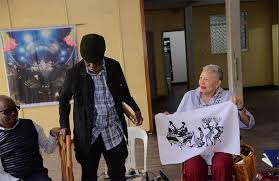The Ugandan government has announced plans to introduce body-worn cameras (BWCs) for police officers, in a move aimed at restoring public trust and fighting corruption in the country’s most tainted law enforcement institution.
The initiative was unveiled during the launch of the NRM 2026–2031 manifesto on Monday, September 29, at Speke Resort Munyonyo, presided over by President Yoweri Museveni.
“We are going to introduce them gradually starting with Kampala Metropolitan, and we should be able to reduce corruption and improve good governance,” said Moses Byaruhanga, one of the manifesto’s drafters.
For years, the Uganda Police Force has been ranked as the country’s most corrupt institution by Transparency International, Afrobarometer, and the National Integrity Survey.
Bribery and extortion are widespread, especially in the traffic police and Criminal Investigations Directorate (CID).
Surveys suggest two-thirds of Ugandans believe “most” or “all” police officers are corrupt.
Many citizens report being forced to pay bribes before receiving police assistance.
The government hopes that cameras will serve as independent witnesses, capturing both audio and video evidence of police interactions with the public, thereby discouraging misconduct.
Each camera will be chest-mounted, recording from the officer’s perspective. For the rollout to succeed, officers will need training on:
When to turn cameras on or off.
How to store and upload footage securely.
Ensuring privacy and safeguarding sensitive recordings.
The program will also require a digital evidence management system (DEMS), with:
Cloud storage for millions of hours of footage.
Strong internet connections for uploads.
Clear rules for access, retention, and use in court cases.
Experts warn that the cost of cameras, training, and digital storage could be very high, but argue that the long-term benefits—improved accountability, reduced bribery, and stronger public trust—make it worthwhile.
The body camera plan is one of several digital reforms under the NRM’s manifesto. Others include:
Tracking medicine supplies in public health facilities.
Digital monitoring of teacher and doctor attendance.
Moving all government services online for transparency.
If successful, Uganda would join countries like the United States, UK, and Kenya, where body cameras have already been deployed to improve police accountability.



